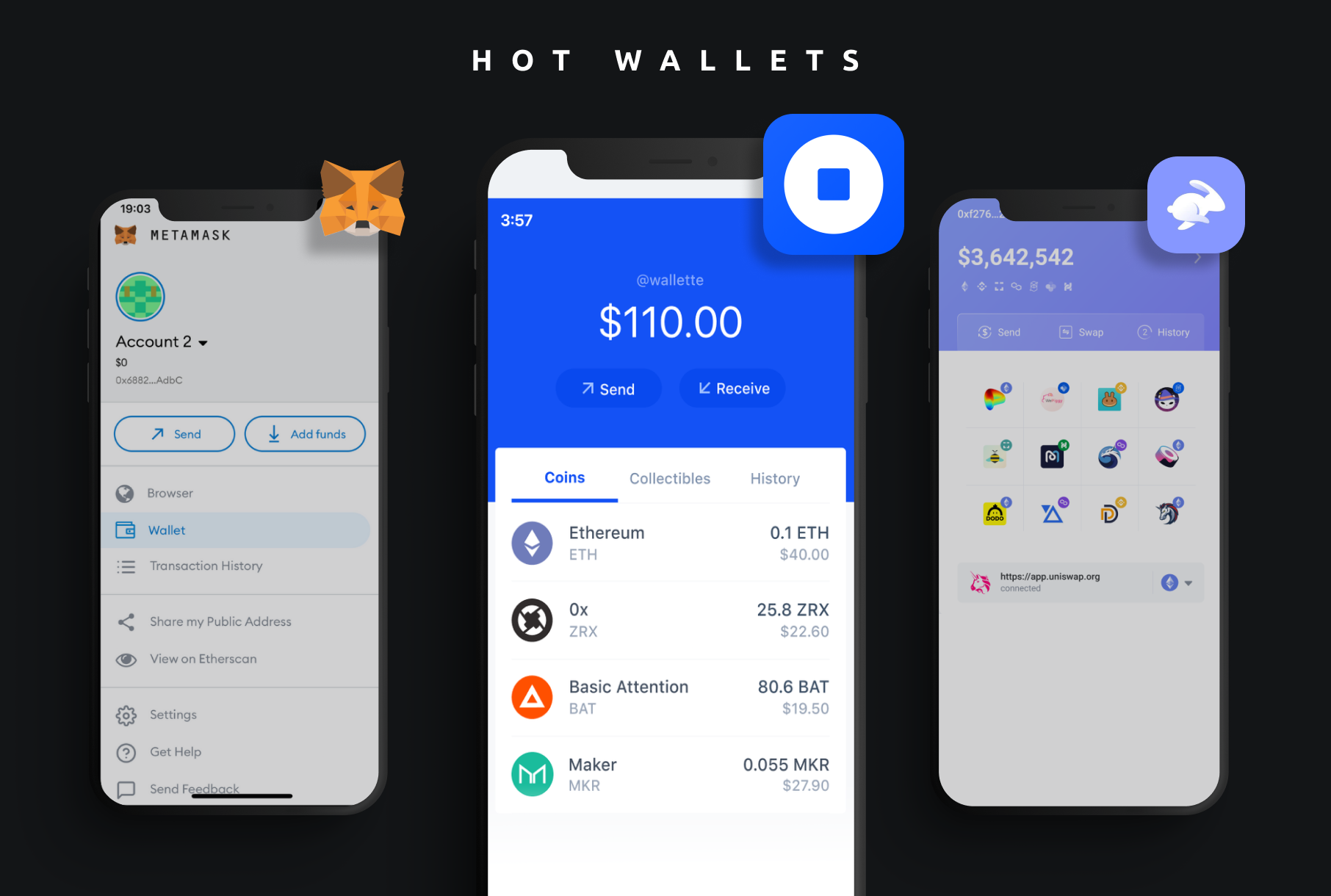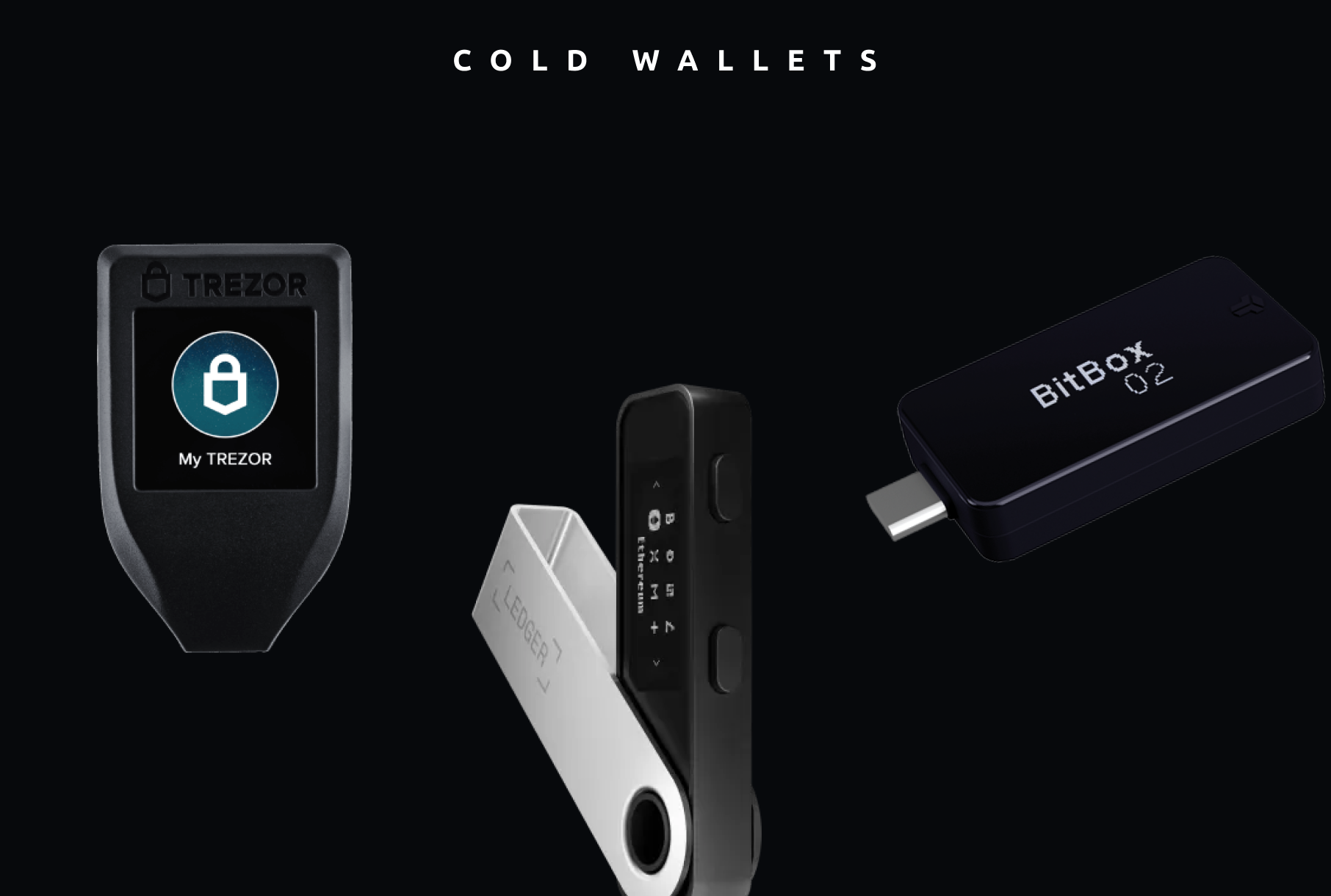Guides
Wallets
A cryptocurrency wallet is a software program(Hot Wallet) or hardware device(Cold Storage) that stores the private and public keys needed to interact with various blockchain networks. These wallets allow users to send, receive, and manage their digital assets securely.
Think of your personal address like a location on the map, the map is a vast wasteland of darkness and there would be no way to find your address without the proper tools. A crypto wallet ties cryptography and private keys with a graphical user interface to not only find and view your address, but to interact and transact with the tokens that lie within it.
Lets discuss what a wallet enables for the user in terms of DeFi:
Secure Storage: Cryptocurrency wallets provide a secure way to store digital assets. Private keys, which are required to authorize transactions, are typically encrypted and stored securely within the wallet. This ensures that users have full control over their funds and can access them whenever needed.
Transaction Execution: DeFi platforms often require users to interact with smart contracts on the blockchain to execute financial transactions, such as lending, borrowing, trading, or providing liquidity. Cryptocurrency wallets facilitate these interactions by signing transactions with the user's private keys, thereby enabling them to participate in DeFi activities directly from their wallets.
Interoperability: DeFi encompasses a wide range of protocols and applications built on various blockchains. Cryptocurrency wallets support multiple blockchains, allowing users to access different DeFi ecosystems from a single interface.
Asset Management: DeFi users often hold multiple digital assets across different protocols. Cryptocurrency wallets provide a convenient way to manage these assets in one place, allowing users to view their balances, track transaction history, and switch between different assets seamlessly.
Integration with DeFi Platforms: Many cryptocurrency wallets offer integrations with popular DeFi platforms, providing users with direct access to decentralized exchanges (DEXs), lending protocols, yield farming opportunities, and more. These integrations streamline the user experience, making it easier for individuals to explore and participate in DeFi.
Overall, cryptocurrency wallets serve as the gateway to decentralized finance, empowering users to harness the benefits of blockchain technology for managing their financial assets in a decentralized and secure manner.
Types of Wallets
There will be two reoccurring adjetives side-by-side the use of wallet in DeFi: Hot & Cold. Let's break down the differences between the two so that you can decide what works best for you.
Hot

Think of a hot wallet in DeFi like your everyday wallet that you carry around for quick and easy access to your money. In the world of DeFi, a hot wallet is a software wallet that's connected to the internet and readily accessible for making transactions and interacting with DeFi platforms.
Just like your physical wallet, a hot wallet in DeFi allows you to quickly send, receive, and manage your cryptocurrencies. It's handy when you want to participate in things like trading, lending, or investing in DeFi projects because it's always connected to the internet and ready to use.
However, because it's always online, there's a slightly higher risk compared to other types of wallets. Having a super accessible wallet is great to make quick transactions, but opens the user up to a lot more risk. There is no failsafes when transacting with unknown smart contracts, meaning one false step or malicious contract and the potential loss of funds increases.
Cold

A cold wallet in DeFi refers to a super secure safe tucked away in a secret spot, where you store your valuable treasures. Put simply a cold wallet is a digital wallet that's kept offline most of the time, making it extra secure from online threats like hackers.
Just like how you'd store your most prized possessions in a safe at home, a cold wallet keeps your cryptocurrencies safe by storing your private keys offline, away from the internet. Since it's not connected to the internet all the time, it's much harder for hackers to access your funds compared to a hot wallet.
You might use a cold wallet when you're not planning to make frequent transactions or trades. It's like your long-term savings account, where you keep your assets safe and secure for the future.
You will be interacting with much less smart contracts as it becomes more cumbersome to keep a physical device on and utilizing its physical interface each transaction. This allows for a bigger failsafe and is commonly used as a storage of longer held assets by the user.
What should I choose?
While we can't make the decision for you, we can recommend a mix of both Hardware(cold) wallets and Software (hot) wallets! Utilize hot wallets for all the quick swaps and transactions you may make while utilizing dAPPs while sending your cold storage excess funds to hide away from nasty actors (or even yourself) to pull back out when your ready to use those assets again!